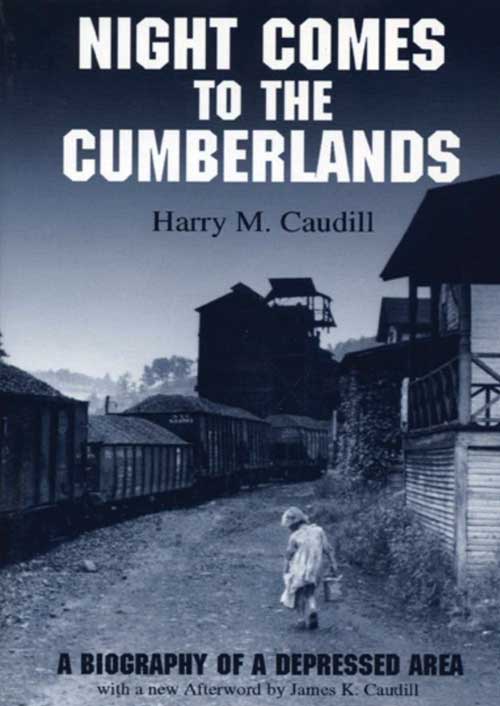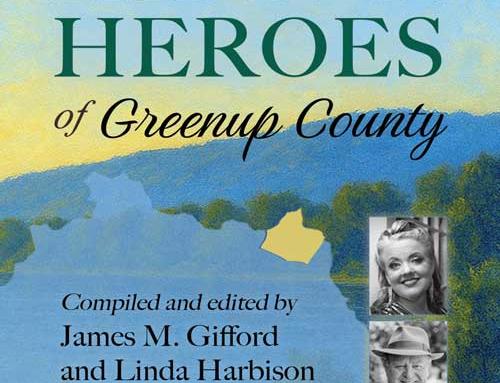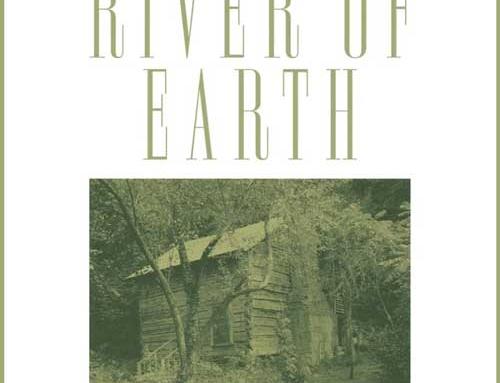When Harry Caudill, a recipient of the Purple Heart, returned to Kentucky after serving as an infantry soldier during World War II, he resumed his studies at the University of Kentucky. Later, he graduated from law school and returned home to Whitesburg, Kentucky, to practice law. His deep commitment to improving the quality of life in eastern Kentucky took him into the political arena, and he served in the Kentucky House of Representatives.
He also became a widely recognized spokesman for the people of his mountain homeland through his writings. Perhaps the most profound and provocative of his books was “Night Comes to the Cumberlands: A Biography of a Depressed Area.” Every once in a great while, a book like this one describes our history and has such an enormous impact that it actually shapes our history.
 At the time it was first published in 1962, it framed such an urgent appeal to the American conscience that it actually prompted the creation of the Appalachian Regional Commission, a federal agency that has pumped millions of dollars into Appalachia.
At the time it was first published in 1962, it framed such an urgent appeal to the American conscience that it actually prompted the creation of the Appalachian Regional Commission, a federal agency that has pumped millions of dollars into Appalachia.
Caudill’s study begins in the violence of the Indian wars and ends in the economic despair of the 1950s and 1960s. Two hundred fifty years ago, the Cumberland Plateau was a land of great promise. Its deep, twisting valleys contained rich bottomlands. The surrounding mountains were teeming with game and covered with valuable timber. The people who came into this land scratched out a living by farming, hunting, and making all the things they need – including whiskey.
The quality of life in Appalachia declined during the Civil War and Appalachia remained “in a bad way” for the next century. By the 1940s, 50s, and 60s, Appalachia had become an island of poverty in a national sea of plenty and prosperity. Caudill’s book alerted the mainstream world to our problems and their causes. Since then, the ARC has provided millions of dollars to strengthen the brick-and-mortar infrastructure of Appalachia and to help us recover from a century of economic problems that had greatly undermined our quality of life.
Sometimes visitors to the Jesse Stuart Foundation ask us to suggest books that will help them understand Appalachia, and we recommend the following as “get-started” reading: “The Frontiersmen” by Allan W. Eckert; “A Long Row to Hoe” by Billy C. Clark; “The Thread That Runs So True” by Jesse Stuart; “River of Earth” by James Still; and “Night Comes to the Cumberlands” by Harry M. Caudill.
More than two decades ago, “Night Comes to the Cumberlands” had gone out of print. At that point, Harry’s widow Anne, his son James, and I launched a campaign to persuade the publisher to revert the rights to the book so we could re-issue this out-of-print classic. Our efforts finally met with success, and since 2001, a softback edition of “Night Comes to The Cumberlands” has been available from the Jesse Stuart Foundation.
Other Harry M. Caudill books available through the JSF include “Dark Hills to Westward: The Saga of Jenny Wiley;” “The Senator from Slaughter County;” and “Watches of the Night,” a follow-up to “Night Comes to the Cumberlands.”
For more information about Harry M. Caudill’s books, and other books about Appalachia, contact the JSF Bookstore at 4440 13th Street in Ashland. Call 606-326-1667, email jsf@jsfbooks.com, or visit jsfbooks.com.
James M. Gifford, Ph.D.
CEO & Senior Editor
Jesse Stuart Foundation
When Harry Caudill, a recipient of the Purple Heart, returned to Kentucky after serving as an infantry soldier during World War II, he resumed his studies at the University of Kentucky. Later, he graduated from law school and returned home to Whitesburg, Kentucky, to practice law. His deep commitment to improving the quality of life in eastern Kentucky took him into the political arena, and he served in the Kentucky House of Representatives.
He also became a widely recognized spokesman for the people of his mountain homeland through his writings. Perhaps the most profound and provocative of his books was “Night Comes to the Cumberlands: A Biography of a Depressed Area.” Every once in a great while, a book like this one describes our history and has such an enormous impact that it actually shapes our history.
At the time it was first published in 1962, it framed such an urgent appeal to the American conscience that it actually prompted the creation of the Appalachian Regional Commission, a federal agency that has pumped millions of dollars into Appalachia.

Caudill’s study begins in the violence of the Indian wars and ends in the economic despair of the 1950s and 1960s. Two hundred fifty years ago, the Cumberland Plateau was a land of great promise. Its deep, twisting valleys contained rich bottomlands. The surrounding mountains were teeming with game and covered with valuable timber. The people who came into this land scratched out a living by farming, hunting, and making all the things they need – including whiskey.
The quality of life in Appalachia declined during the Civil War and Appalachia remained “in a bad way” for the next century. By the 1940s, 50s, and 60s, Appalachia had become an island of poverty in a national sea of plenty and prosperity. Caudill’s book alerted the mainstream world to our problems and their causes. Since then, the ARC has provided millions of dollars to strengthen the brick-and-mortar infrastructure of Appalachia and to help us recover from a century of economic problems that had greatly undermined our quality of life.
Sometimes visitors to the Jesse Stuart Foundation ask us to suggest books that will help them understand Appalachia, and we recommend the following as “get-started” reading: “The Frontiersmen” by Allan W. Eckert; “A Long Row to Hoe” by Billy C. Clark; “The Thread That Runs So True” by Jesse Stuart; “River of Earth” by James Still; and “Night Comes to the Cumberlands” by Harry M. Caudill.
More than two decades ago, “Night Comes to the Cumberlands” had gone out of print. At that point, Harry’s widow Anne, his son James, and I launched a campaign to persuade the publisher to revert the rights to the book so we could re-issue this out-of-print classic. Our efforts finally met with success, and since 2001, a softback edition of “Night Comes to The Cumberlands” has been available from the Jesse Stuart Foundation.
Other Harry M. Caudill books available through the JSF include “Dark Hills to Westward: The Saga of Jenny Wiley;” “The Senator from Slaughter County;” and “Watches of the Night,” a follow-up to “Night Comes to the Cumberlands.”
For more information about Harry M. Caudill’s books, and other books about Appalachia, contact the JSF Bookstore at 4440 13th Street in Ashland. Call 606-326-1667, email jsf@jsfbooks.com, or visit jsfbooks.com.
James M. Gifford, Ph.D.
CEO & Senior Editor
Jesse Stuart Foundation




